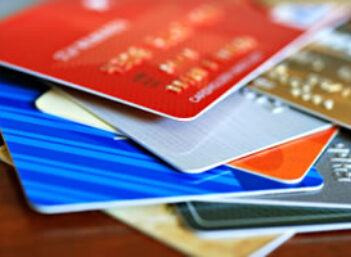Looking to get a little more bang for your saved buck? Depositing your hard-earned dollars in an online bank might be worth a long look if you're seeking higher yields.
Today, many of the highest-yielding bank accounts in the US are offered through online banks, as opposed to traditional brick-and-mortar banks.
Online banks exist only through the internet but offer just about all the same account features (checking, savings, money market accounts, etc.) as their brick-and-mortar branch cousins that consumers have relied upon for decades. But differences in the cost structures of Internet banks allow them to pony up more money for those higher interest rates.
The top two expenses for branch banks are payroll and facilities.
'Since, by their nature, Internet banks compared to branch banks have much lower payroll and facilities expenses, they operate on smaller profit margins and can afford a slightly higher expense on interest on deposits,' said Dan Geller, executive vice president of Market Rates Insight.
[Check out Money Market vs Savings: Which Account is Right for You?]
But determining if virtual banking is for you goes beyond the rate of return on every dollar deposited. Here's a look at the key factors experts say you should consider when considering online banking.
The Pros of Online Banking
The biggest perk enjoyed by virtual banking customers is the higher rates generally paid on deposits.
Originally, virtual banks started by offering certificates of deposit (CDs), said Howard J. Lothrop, CFA, managing director at the banking industry consulting firm Echo Partners and a former senior vice president at a major regional bank.
'The two reasons for this are since CD rates appeal to price-conscious depositors, deposits could be gathered quickly when needed simply by offering a higher rate,' he said. 'And CDs lock the depositor in until maturity, so there are fewer transactions, compared with other banking products.'
Then there's the remote capture technology that lets consumers deposit checks through their smartphone instead of having to physically bring it or mail it to the bank. This opens the door to virtual banks handling checking accounts in a more efficient manner from afar. Branch banks are beginning to incorporate this technology, too.
Because online banks rarely close, they're also more convenient. You can bank at any time from anywhere you have an Internet connection.
'We offer client service 24 hours a day, 364 days of the year,' said Frank Trotter, president of EverBank Direct. 'All our team takes Christmas off, but the website is open all year and all day. Since we are a bank, transactions don't clear on bank holidays but the team is here to provide great service.'
The Cons of Online Banking
Virtual banks have two primary downsides.
'First, since you can't walk into the branch and deal with a teller or branch manager, problems or mistakes requiring customer service can be frustrating and difficult to resolve,' Lothrop said.
He points out that the second downside is a much more abstract concept, but a vital one nonetheless. In short, banks are not like other businesses.
'They are more like a public utility, performing a major socioeconomic function by providing financial services to the bank's primary market area,' Lothrop said. And without a meaningful local presence, how can a bank deliver true service to the community?
Online banks don't have local roots. They often specialize on offering a particular type of auto loan, credit card or mortgage, and their clients can be scattered across the country instead of around the town.
'Banks without roots in a community will not adequately support local and small businesses, the job-creation engines of the economy,' Lothrop said. 'Without the ability to assess credit based upon that 'hometown quotient,' which is something other than 'the numbers,' how could they?'
It's that inability to fully serve a local community that critics say is the Achilles' heel of virtual banks. But there's plenty of good news.
'Virtual banks are pushing traditional banks to increase the pace of technological adoption,' Lothrop said.
Are Online Banks Right for You?
To make online banking work for you, do your homework. Before opening an account, explore an online bank's social media presence on Facebook and Twitter to sniff out what current customers are saying about the bank's customer service and products.
And don't forget to read the disclosures and review the terms of your account/deposit agreement to understand how to navigate your virtual lobby before you find yourself lost in it. Put simply, if you do your research, you'll reap the rewards.



